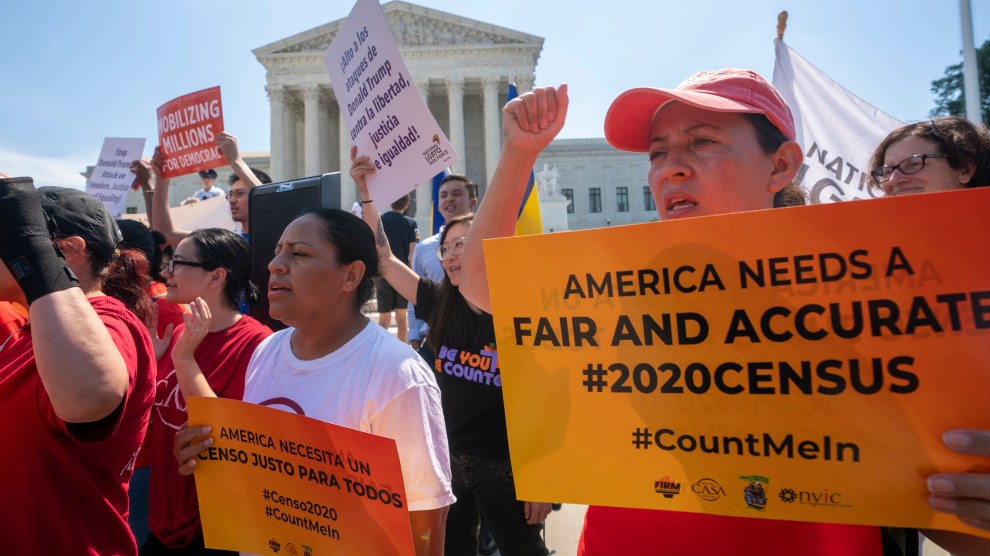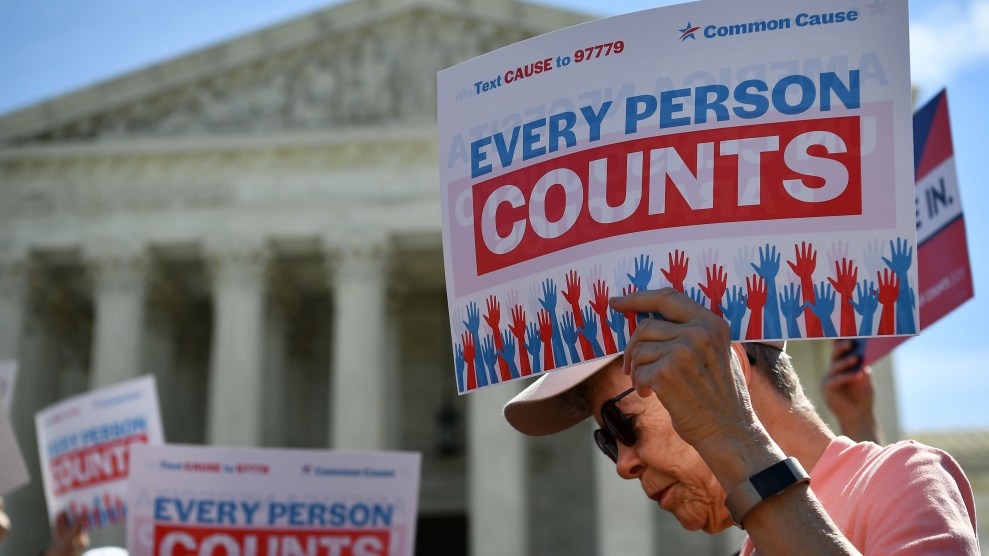
People protest the possibility of a citizenship question on the census in 2019.J. Scott Applewhite/File/AP
Advocates for a fair census feared this would happen: The nation’s 2020 headcount undercounted Black, Hispanic, and Native American residents of the US, while white people and Asian Americans were overcounted, according to a Census Bureau report released Thursday.
The overall population count was largely accurate, despite the difficulty of tallying people during a pandemic. Among the ethnic groups that were undercounted, Hispanics stood out: They were omitted at more than three times the rate they were in 2010. The census impacts everything from the locations of schools and grocery stores to our congressional maps and the distribution of hundreds of thousands of dollars in federal funding. An undercount in a population can mean a decade of diminished economic and political power.
The 2020 census was plagued not only by a pandemic, but by confusion over former President Trump’s desire for a citizenship question, which immigrant rights groups feared could lead to an undercount among undocumented people. The Constitution mandates a headcount of all people permanently residing in the United States, regardless of citizenship status.
The Census Bureau calculates undercounts by analyzing government records and performing extensive surveys of 10,000 census blocks. It then compares these datasets to the existing census numbers. Overcounts could result from people being counted twice or the accidental inclusion of dead people. Undercounts represent people who have been passed over entirely.
The new report tells how accurate census data is nationally. State-level data are set to be released this summer.

















